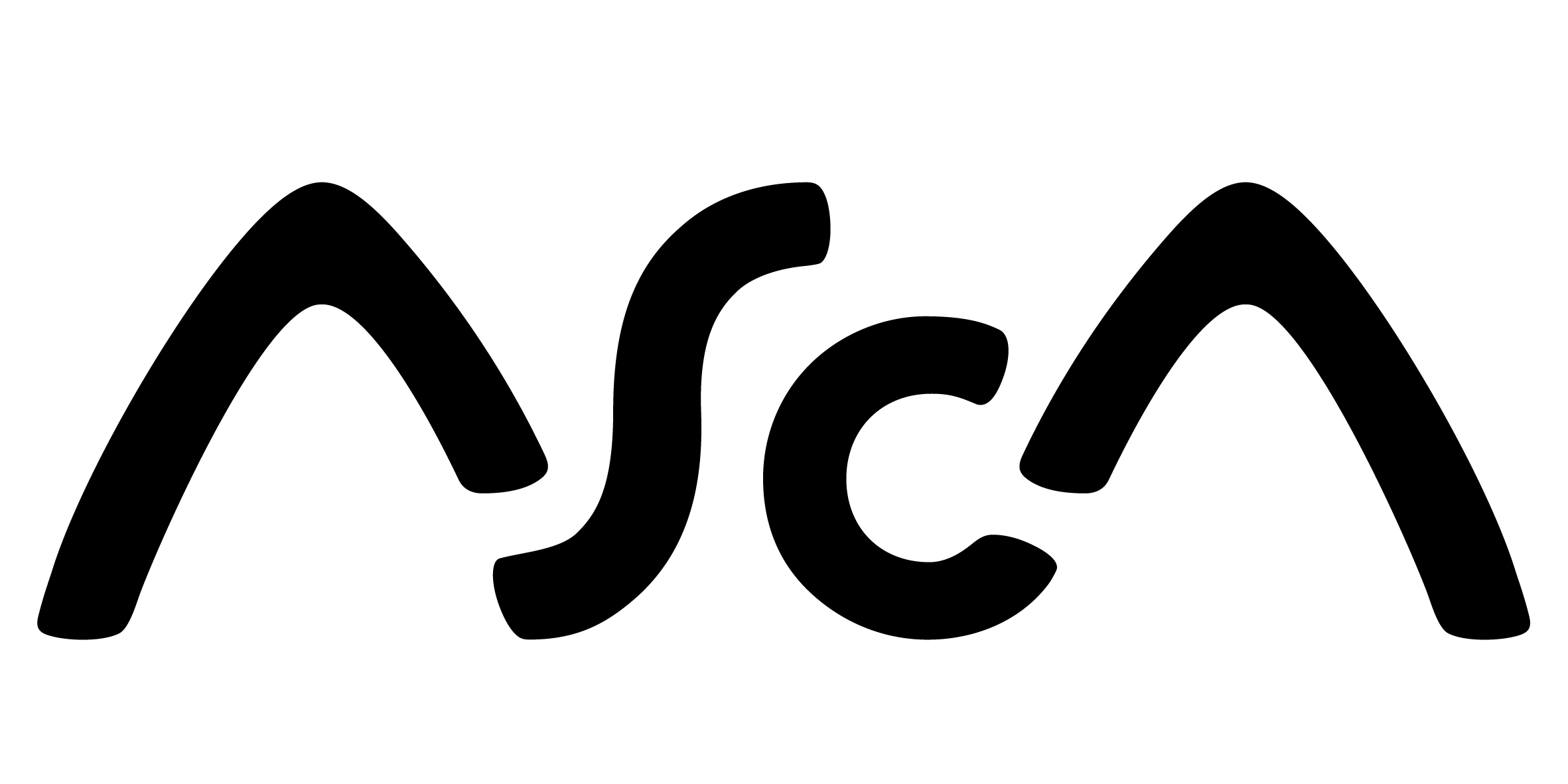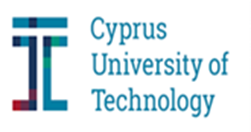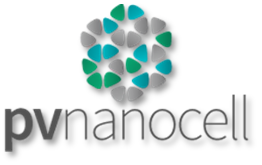Warning: Undefined variable $i in /www/doc/www.rola-flex.eu/www/wp-content/themes/BBtheme/partnerslist.php on line 4

NTUA

TNO

ASCA-FR

CUT

FlexEnable

PVN

AVA

PCAS

ASCA-DE

POLAR
AMIRES

UO
Warning: Undefined variable $coordinator_array in /www/doc/www.rola-flex.eu/www/wp-content/themes/BBtheme/partnerslist.php on line 26

NTUA
National Technical University of Athens
Responsible person: Ioanna Zergioti & Filimon Zacharatos
Country: Greece
WEBSITE
The Department of Applied Physics of the National Technical University of Athens (NTUA) has a renowned research activity on laser – materials processing for optoelectronic applications. Among the main achievements of the NTUA group are the all-laser fabrication of organic thin film transistors, organic photovoltaics and sensors and the laser sintering/curing of micro and nanostructures (silver, copper) for a wide range of applications, including interconnections. After years of innovative research, NTUA is now capable of achieving laser printing (using the Laser Induced Forward Transfer technique) and laser sintering of conductive materials at speeds > 5 m/s, with resolution down to <10 μm.
NTUA is the project coordinator of RoLA-FLEX and will be responsible for the technical management and administrative activities. In addition, NTUA will optimize and apply the high-speed laser digital process for the fabrication of metal grids within WP4 and will carry out the laser based digital manufacturing of the gate electrode lines for the OTFT/OLCD demonstrator for WP5.
Warning: Undefined variable $coordinator_array in /www/doc/www.rola-flex.eu/www/wp-content/themes/BBtheme/partnerslist.php on line 26

TNO
Nederlandse Organisatie voor toegepast natuurwetenschappelijk Onderzoek
Responsible person: Veronique Gevaerts & Johan Bosman
Country: Netherlands
WEBSITE
TNO is one of the major contract research organisations in Europe. TNO is carrying out research in order to achieve impact on the following seven themes: Healthy Living, Industrial Innovation, Transport and Mobility, Energy, Built Environment, Information Society, and Defense, Safety and Security. By translating scientific knowledge into practical applications, TNO contributes to the innovation capacity of businesses and government.
The Holst Centre and Solliance branches of TNO are independent open-innovation R&D centres. In these partnerships TNO develops generic technologies for Flexible Electronics and Thin-Film Photovoltaics. Holst Centre focuses on key enabling technologies to realize complex functional electronic devices on thin plastic foils. These technologies for example include printing, assembly and all kinds of patterning technologies. Solliance Solar Research has a strong background in interconnection technology for thin-film PV using post-deposition laser processing.
TNO’s Holst Centre and Solliance research groups will both contribute to this project. TNO has pilot lines for OPV, OLED, Perovskite and solar cells manufacturing and extensive facilities for their structural, performance and durability characterisation. In the project TNO will be responsible for patterning and making interconnections in OPV modules using laser patterning combined with laser induced forward transfer (LIFT) of dielectric and conductive materials. These fully digital processes will allow manufacturing of OPV modules with freedom of shapes and geometries.
TNO will be the WP4 leader. TNO will develop innovative technology for manufacturing OPV modules employing the high-speed laser digital processes for patterning and making interconnections.
Warning: Undefined variable $coordinator_array in /www/doc/www.rola-flex.eu/www/wp-content/themes/BBtheme/partnerslist.php on line 26

ASCA is a Business Unit of Armor, created in 1922, has 1800 employees worldwide, 250 m€ revenue, 80% export. Expertise in formulation, coating and finishing of jumbos/reels in different applications (PET, PC, aluminium, copper, foils, etc.) and in a wide range of formats (from sheet to 40 kilometers length). 7 Business Units (AICP, AOP, ACES, A3D, A2I, AAC, ASCA). Since 1st July 2019, the OPV activity is housed in a dedicated 100% owned subsidiary of Armor SAS: Armor solar power films S.A. Partners in 4 ANR projects, 1 ADEME project and in 3 H2020 projects. OPV Activity (ASCA) was launched in 2008 and commercialization started in December 2016. OPV team has 35 permanent employees. ASCA-FR will contribute to the choice and analysis of the materials, and their scale up for their qualification on our R2R equipment, then their compatibility with free form processes. ASCA-FR will particularly contribute to exploitation strategies.
Warning: Undefined variable $coordinator_array in /www/doc/www.rola-flex.eu/www/wp-content/themes/BBtheme/partnerslist.php on line 26

The Cyprus University of Technology (CUT) was established in 2004. CUT has the mission to deliver world-class education and research in applied science and engineering regarding application in industry and its intent to foster interdisciplinary working internally and to collaborate widely externally. A critical component of the CUT is to engage fully in education, training and outreach activities. This is necessary to repay society for its investment and to ensure that academic institutions are understood and appreciated as having relevance to the ‘real world’. It is also highly interested in ensuring a positive and informed dialogue with government and with other funding agencies, including industry and the charitable sector.
The work within RoLA-FLEX is carried out by the Molecular Electronics and Photonics (MEP) Research Unit within CUT. MEP role will be to
characterise RoLA-FLEX inorganic electronic materials/device components,
resolving organic solar cell electrodes related limitations
optimize small area OPV device performance (PCE and Lifetime).
CUT will directly transfer results/knowledge from material/device component and small area organic solar cell processing to RoLA-FLEX material providers (AVANTAMA/PVN), laser processing partners (NTUA) and up-scale flexible OPV module development partners (TNO/ARMOR).
Warning: Undefined variable $coordinator_array in /www/doc/www.rola-flex.eu/www/wp-content/themes/BBtheme/partnerslist.php on line 26

With hundreds of patents and more than 1000 engineering years in the development of organic materials and manufacturing processes, FlexEnable is the worldwide leader in organic electronics. The company has developed and industrialised a complete low-temperature manufacturing process for small and large-area organic electronics on ultra-thin plastic substrates. FlexEnable also owns the best-in-class, highest-performance organic materials – FlexiOM™ – making it the only company to offer both materials which are better than amorphous silicon and industrially proven enabling manufacturing processes. FlexEnable is bringing organic electronics technology to market in a fabless business model. FlexEnable’s processes and solutions have been developed to be run on existing flat panel display lines, leveraging existing assets and supply chain. Applications for FlexEnable’s technology include flexible displays for consumer electronics and automotive interiors, flexible sensors and optics.
FlexEnable will lead WP5 and will contribute to.
Evaluation of the novel OSC material and LIFT process develop in RoLA-FLEX in an industrial platform.
Integration of RoLA-FLEX technologies in FlexEnable’s OLCD display for Polar to integrate in a demo for testing and benchmarking.
Warning: Undefined variable $coordinator_array in /www/doc/www.rola-flex.eu/www/wp-content/themes/BBtheme/partnerslist.php on line 26

PV Nano Cell Ltd. (PVN) is a conductive ink manufacturing company focused on developing, manufacturing, marketing and commercializing conductive inks for digital conductive printing applications (mainly inkjet and aerosol printing technologies). PVN has developed the Sicrys™ family of single crystal nano-metric conductive inks, which enables a significantly less costly and less wasteful alternative to current screen printing and, in some cases, photolithography processes for photovoltaic (PV) and printed electronics (PE) applications.
PVN strategy is to concentrate its efforts on mass production applications opportunities by selling inks to be used in mass production printers with high throughput and high consumption of inks per year. PVN is currently developing a “Complete Solution Approach”, in which it will work with equipment producers to supply its customers with equipment, process and inks for their applications. PVN intends to provide service to customers by not only selling inks, but also securing equipment suitable for implementation in their production lines and by working with them to develop the production processes suitable to the relevant applications and their needs. PVN has granted patents on its silver and copper inks in many countries.
PVN will lead WP3. PVN will develop silver and copper viscous ink formulations suitable for laser printing process and reaching electrical performance as set by the end-users. PVN will provide samples to partners for testing and for the demonstrators and upscale the production process to larger quantities. PVN will characterize and work on ink physical and environmental stability.
Warning: Undefined variable $coordinator_array in /www/doc/www.rola-flex.eu/www/wp-content/themes/BBtheme/partnerslist.php on line 26

Avantama AG was founded in 2008 as a spin-off company from the Swiss Federal Institute of Technology (ETH). AVA currently has 20 employees and is a leader in the tailor-made development of specialty nano-particles , perovskite quantum dots and inorganic inks for printed electronics. With its unique and versatile technology, AVA is able to custom develop coating formulations yielding novel materials with unique electronic properties. AVA’s knowhow enables very short development cycles thus efficient and focused materials development. AVA has developed metal oxide nanoparticle-based inks enabling solution processing of inorganic thin layers in photovoltaics (e.g. OPV), OLED and electrochromic applications. One of the advantages of these inks is their compatibility with polymeric substrates and a curing temperature as low as 80°C. Based on the printable inorganic ink, adaptations and optimization of the physical properties (e.g. conductivity) can be made in a straight-forward way.
AVA has a strong patent portfolio of 110+ patents for the application in optoelectronic devices.
AVA’s aim is the development of electronically fine-tuned inorganic colloidal formulations for large-scale processing of charge transport layers by R2R enabling devices with high lifetime and performance. AVA is also focusing on low-cost, low-temperature processing and scalability.
AVA will define and provide the specification regarding the metal oxide composition, the composition of the coating formulation and the quality of raw materials in WP1.
Warning: Undefined variable $coordinator_array in /www/doc/www.rola-flex.eu/www/wp-content/themes/BBtheme/partnerslist.php on line 26

PCAS
PRODUITS CHIMIQUES AUXILIAIRES ET DE SYNTHESE SA
Responsible person: Pierre-Antoine Bonnardel
Country: France
WEBSITE
PCAS (SEQENS group) is a French ETI specialized in the development and production of polymers and complex molecules for the life sciences and innovative technologies. With 11% of its turnover dedicated to R & D and a large international presence, PCAS is the preferred industrial partner of the leading companies in their markets. PCAS offers a growing range of products and solutions in leading segments such as pharmaceuticals, fine chemicals, lubricant additives and electronics. In the field of electronics, PCAS is present in two fields: (1) microelectronics, providing very high purity polymers for the production of electronic chips by lithography, and (2) organic electronics, in providing semiconductor polymers or complex molecules to active customers in OLED, OPV, sensors and OFETs. PCAS supports its industrial customers in the development of their products from the stage of laboratory feasibility to industrialization, offering a wide range of synthesis technologies and while integrating regulatory and process safety constraints.
The main task of PCAS within RoLA-FLEX will be dedicated to the scaling-up of the different organic materials that will be developed by the partners of the consortium with a particular focus on the use of non-toxic and non-chlorinated solvents and the development of processes that comply with the hygiene and safety rules.
Warning: Undefined variable $coordinator_array in /www/doc/www.rola-flex.eu/www/wp-content/themes/BBtheme/partnerslist.php on line 26

ASCA GmbH (ASCA-DE), located in Nuremberg and Kitzingen, was established in 2012 and is among the world leaders in the field of organic photovoltaics (OPV). The company, formerly known as OPVIUS GmbH, became part of the Armor group in October 2019 and was renamed in mid-2020. ASCA-DE produces organic solar cells with a focus on client-specific solutions. In addition, the company is also active in the field of research and development, in order to continue to provide its clients with creative and innovative solutions. In this regard, ASCA-DE uses a unique production process, combining printing, lamination, and laser techniques. This advanced technology is easily scalable and allows the production of the utmost individual, customer-specific designs. ASCA-DE also helps clients with system solutions in order to integrate OPVs into already existing or new products. ASCA-DE is world leader in the integration of OPV modules in new and already existing products to provide functionality on any kind of surface. Moreover, the company has also vast expertise in the system design of such integrated solutions to make use of the collected energy. Recently ASCA-DE has developed a smart energy management platform which offers the possibility to use light (outdoor as well as indoor) instead of batteries to power IoT devices. The energy is stored temporarily in capacitors and released once sufficient power is available. Aforementioned expertise will be introduced to the RoLA-FLEX project in order to accomplish the realization of the OPV-based demonstrator. ASCA-DE will lead the use case on flexible OPV integration in a smart energy platform for IoT devices. This will lead to the realization of integrated solutions consisting of OPV modules, IoT devices and an energy management platform.
Warning: Undefined variable $coordinator_array in /www/doc/www.rola-flex.eu/www/wp-content/themes/BBtheme/partnerslist.php on line 26

Polar Electro (POL) was founded in 1975 and pioneered from the very beginning the smart watch category with heart rate measurement and physical activity monitoring. POL is a family-owned enterprise having its headquarters and most of the R&D Finland having the ownership of the full value chain including research, product integration, service development, manufacturing, marketing and global sales operations.
Polar is the largest sports watch provider in Europe. Recently, the wearable category, especially smart watches, has shown significant business growth resulting in increased competition in all areas. The popularity of the category results in a large variety of suitable technologies available with a plenty of vendors. Therefore, one strategic action is to get access to the newest technologies as early as possible. Therefore, POL has invested heavily in its own research and collaboration with the best research entities. The research department consist of approximately 40 researchers and experts with competence comprising test design, human physiology, industrial design, computer science and hardware engineering. The main POL products consist of smart watches and sensors having focus on ambulatory digital sports and fitness coaching services (Smart Coaching) features which primarily serve athletes and sports enthusiasts.
The role of Polar Electro is to represent the end user and the integrator of the final product in the project. This is what Polar does on regular basis in its daily R&D activities.
In WP6 POL will develop the second use case. This is based on techniques to integrate the flexible display solutions to an adequate wrist device platform, and further run relevant verifications and validations for the final outcome in order to match the outcome with the user requirements.
Warning: Undefined variable $coordinator_array in /www/doc/www.rola-flex.eu/www/wp-content/themes/BBtheme/partnerslist.php on line 26
AMIRES (AMI) is a consulting and management company for research, development and innovation projects, which provides the necessary strategic and administrative support to high quality international teams to achieve their objectives and facilitates the research-industrial and research-policy making interface. AMI follows projects from their initiation and planning, through negotiation, execution and management to the final stage, where exploitation of new technologies, products or services is facilitated. Moreover, main mission of the company is to facilitate the access of European research to high-tech SMEs and improve exploitation of innovative ideas. AMIRES s. r. o. is based in the Czech Republic but provides its services all around Europe.
AMI will act as the dissemination leader in WP7 coordinating all dissemination and communication activities within the project including setting up of the webpage, communication via social networks and creation of tangible dissemination materials.
Warning: Undefined variable $coordinator_array in /www/doc/www.rola-flex.eu/www/wp-content/themes/BBtheme/partnerslist.php on line 26

University of Oxford (UO) is one of the world’s foremost science and technology research universities, consistently ranked within the top five universities in the World. UO has a reputation for excellence in research and education, with 24,000 students and 14,000 staff. The university hosts multiple researchers across the departments of natural sciences seen as world class leaders in organic electronics and novel solar cell technologies. It also hosts members of the Centre for Doctoral Training in New and Sustainable Photovoltaics as well as the Centre for Processable Electronics. UO will lead the task of setting the specifications of the OSC materials together with the partners who’ll be using them later on for both applications.
UO will lead the design of new high performing organic semiconducting materials for application in organic transistors and organic photovoltaics in WP2.